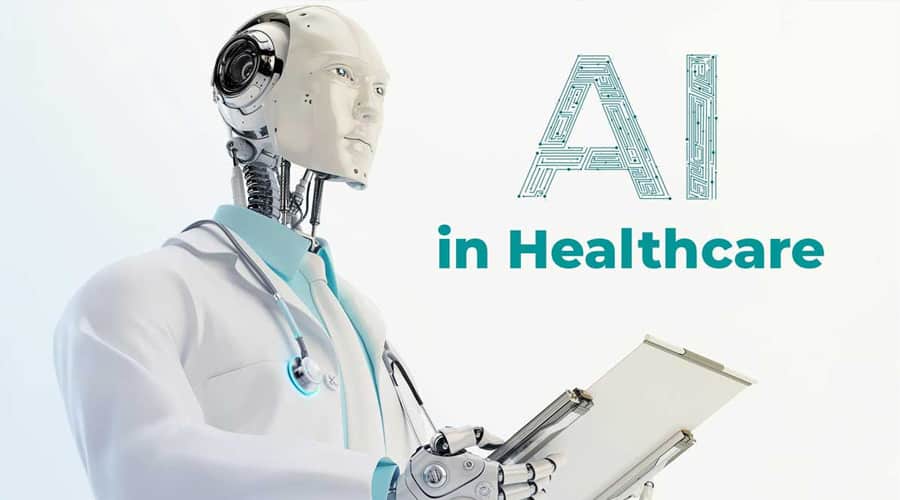AI in Healthcare: A Strategic Guide for African Health Organizations

How should healthcare organizations in Africa approach emerging artificial intelligence solutions?
 In an era where artificial intelligence (AI) is rapidly advancing in the realm of healthcare, African health organizations are presented with the challenge of integrating AI solutions that align with their strategic objectives. Amidst the buzz and enthusiasm surrounding AI’s potential, it is crucial to stay focused, prioritize the right solutions, and ensure that the adoption of AI is purpose-driven. At Healthcoach, your trusted source of health information for Africa, we delve into the intricacies of incorporating AI into healthcare systems.
In an era where artificial intelligence (AI) is rapidly advancing in the realm of healthcare, African health organizations are presented with the challenge of integrating AI solutions that align with their strategic objectives. Amidst the buzz and enthusiasm surrounding AI’s potential, it is crucial to stay focused, prioritize the right solutions, and ensure that the adoption of AI is purpose-driven. At Healthcoach, your trusted source of health information for Africa, we delve into the intricacies of incorporating AI into healthcare systems.
Starting the AI Journey
For African healthcare organizations, a thoughtful approach to AI integration is essential. It’s not about chasing after the latest shiny object; it’s about addressing real needs within the organization. By targeting specific use cases and aligning AI solutions with budgeted requirements that offer a calculable return on investment (ROI), the likelihood of successful adoption increases significantly.
Instead of adopting isolated point solutions, think about AI platforms that can lay the foundation for broader AI integration in the future. By choosing a platform-based approach, organizations can streamline their AI endeavors and ensure scalability.
Current AI Applications in Healthcare
Healthcare organizations across Africa are increasingly leveraging AI-powered solutions for administrative tasks and clinical decision support. These technologies alleviate administrative burdens for clinicians, enabling them to dedicate more time to patient care and practice at the top of their licenses. AI is becoming a valuable ally in enhancing healthcare operations, efficiency, and patient care.
Navigating Challenges
One of the critical prerequisites for AI’s effectiveness in healthcare is access to substantial volumes of high-quality data. Developing a robust data strategy is imperative to ensure a continuous supply of data for AI tools. However, data strategies should also address concerns related to privacy and security. African health organizations must carefully consider data governance, access control, and patient data privacy to foster trust in AI-driven solutions.
Cloud adoption is on the rise, offering the flexibility to experiment with AI solutions without a significant investment in hardware and infrastructure. Many cloud vendors host AI solutions, facilitating accessibility and scalability.
Moreover, fast and reliable networks are essential for AI in healthcare. High-bandwidth, low-latency networks are ideal, as AI algorithms, especially deep learning models, require speed and efficiency. Any latency between the AI model and clinical decision-making can have life-altering consequences.
To embark on the AI journey successfully, African healthcare organizations need to address three key areas:
- A robust data strategy.
- A modern data platform, often involving cloud computing.
-
- User-Centric Design: AI solutions should be designed with the end-users in mind. Whether it’s clinicians, nurses, or administrators, the user experience should be intuitive, user-friendly, and tailored to the specific roles within the healthcare organization.
- Training and Onboarding: A clear adoption process includes training and onboarding programs for users. Healthcare professionals need to understand how to use AI tools effectively, interpret AI-generated insights, and integrate them into their workflows.
- Feedback Mechanism: Implementing a feedback loop allows users to provide input on AI tools, identify areas for improvement, and suggest refinements. Continuous feedback ensures that AI applications align with user needs.
- Change Management: A structured approach to managing organizational change is essential. Healthcare organizations need to plan for a transition to AI, addressing potential resistance, and ensuring smooth adoption.
- Metrics and KPIs: Define key performance indicators (KPIs) to measure the success of AI implementation. This helps healthcare organizations assess the impact of AI on their operations and patient care.
- Scalability and Adaptability: The adoption process should consider scalability to accommodate the growth of AI applications within the organization. It should be adaptable to changes in AI technology and healthcare practices.A clear user experience and adoption process.
A Robust Data Strategy:
A robust data strategy is the foundational element for any successful AI implementation in healthcare. It encompasses several critical aspects:
- Data Sourcing and Collection: Health organizations need to identify and collect a wide range of data types, including patient records, medical imaging, lab results, and more. The data should be not only comprehensive but also of high quality, free from errors or inconsistencies.
- Data Governance: Governance involves creating policies and procedures for data handling, access, and security. This ensures that data is managed ethically, securely, and in compliance with regulations. It also defines roles and responsibilities for data management.
- Data Quality and Integrity: Maintaining data accuracy and consistency is paramount. Data cleansing and validation procedures should be in place to identify and correct errors, ensuring that AI algorithms are fed reliable information.
- Data Privacy and Security: Given the sensitive nature of healthcare data, it’s crucial to address privacy and security concerns. Data encryption, access controls, and compliance with data protection laws are fundamental components of data strategy.
- Data Retention and Archiving: Establishing guidelines for data retention and archiving ensures that data is stored appropriately, making it accessible when needed and disposed of when no longer necessary.
A robust data strategy lays the groundwork for data-driven AI applications by ensuring that data is accessible, accurate, secure, and used ethically.
A Modern Data Platform, Often Involving Cloud Computing:
Modern data platforms are designed to handle large volumes of data efficiently and are frequently integrated with cloud computing services. Here’s what this component entails:
- Cloud-Based Infrastructure: Cloud computing allows healthcare organizations to access scalable computing resources without the need for significant on-premises hardware investments. This is particularly valuable when experimenting with AI, as it provides flexibility and cost-effectiveness.
- Data Storage and Processing: Modern data platforms facilitate the storage, processing, and analysis of diverse data types, making it easier to feed data into AI algorithms. Cloud-based solutions offer scalability to accommodate growing datasets.
- Integration Capabilities: These platforms often support integration with various data sources, including EHR systems, IoT devices, and external databases, ensuring that data is aggregated from multiple touchpoints for AI analysis.
- Data Management Tools: Modern data platforms come with tools and technologies for data management, cleansing, and transformation, streamlining the preparation of data for AI models.
- Scalability and Flexibility: Cloud-based solutions can be scaled up or down according to the organization’s needs, which is crucial for accommodating growing data volumes and adjusting resources as AI initiatives evolve.
- Data Accessibility: Cloud platforms offer secure and remote access to data, allowing healthcare professionals to work with data from different locations while maintaining data security and privacy.
Leveraging modern data platforms in conjunction with cloud computing facilitates the data processing and storage requirements for AI applications, making the transition to AI more cost-effective and efficient.
A Clear User Experience and Adoption Process:
A successful AI implementation isn’t solely about the technology; it also hinges on user experience and adoption. This part involves the following key elements:
A clear user experience and adoption process are instrumental in ensuring that AI tools are embraced by healthcare professionals and seamlessly integrated into daily operations.
These three components – a robust data strategy, a modern data platform, and a clear user experience and adoption process – collectively form the groundwork for the successful incorporation of AI in healthcare, particularly in the context of African health organizations. These elements ensure that data is managed effectively, that the technical infrastructure is capable of supporting AI applications, and that healthcare professionals are empowered to use AI tools to enhance patient care and operational efficiency.
Furthermore, data and AI governance should be a collaborative effort, involving IT, compliance, legal, clinical, advocacy groups, and more.
The Future of AI in African Healthcare
AI solutions in healthcare should aim to enhance the lives of patients and providers. For patients, AI can create a seamless healthcare journey, offering self-service options, personalized care through data analysis, and improved preventative measures.
On the provider side, AI can automate repetitive tasks, such as ambient clinical documentation and support for virtual nursing programs. By relieving clinicians of administrative burdens, AI allows them to focus on delivering exceptional patient care.
Excitement and potential surround AI in healthcare, but it’s crucial to remember that AI is a tool, not a panacea. When used appropriately, AI can empower providers and patients, support healthcare decision-makers, and ultimately advance the healthcare landscape in Africa.
At Healthcoach, we are committed to providing accurate and reliable health information for Africans, including insights into the evolving healthcare technology landscape. Stay informed, stay healthy.



